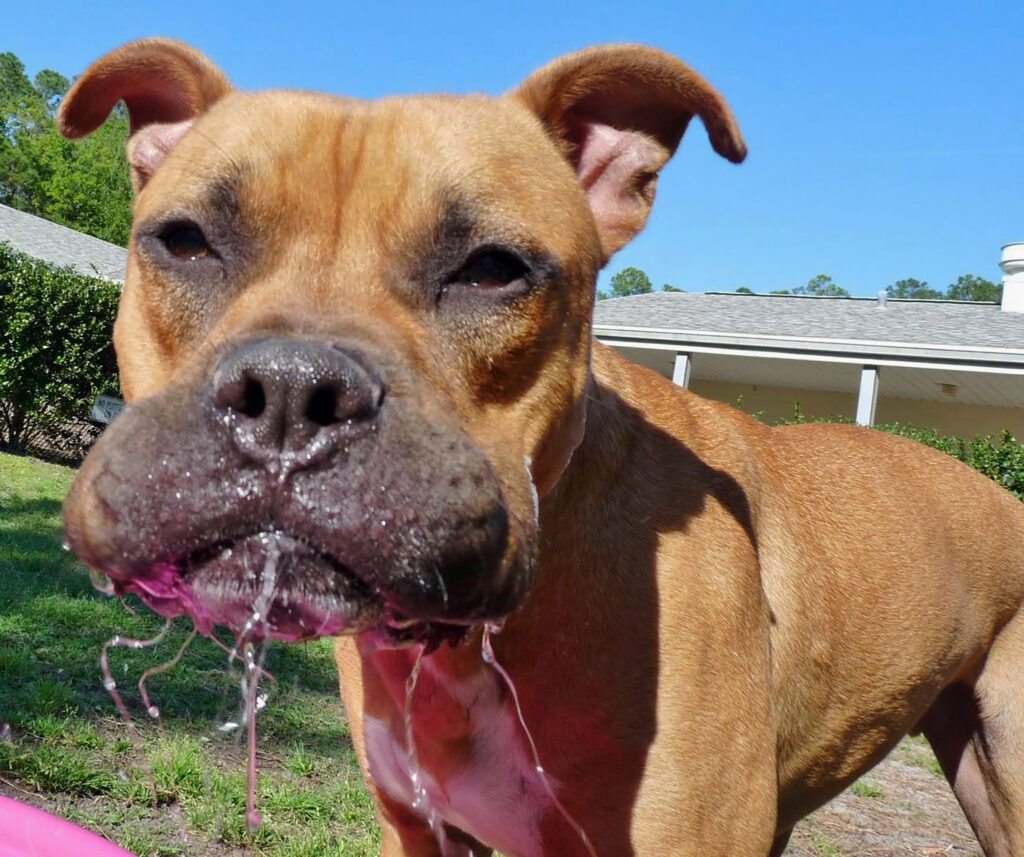Cleft palates are a relatively common birth defect in puppies, and it can be a major challenge for both the puppy and its owner.
Puppies with cleft palates are unable to nurse their mother properly, which can lead to malnourishment and other health complications.
However, with a little extra care and attention, it is possible to help these puppies nurse successfully.
In this article, we’ll share some tips and advice on how to help puppies with cleft palates get the nutrition they need to grow up strong and healthy.
How To Help Puppies With Cleft Palates Nurse Successfully
Understanding Cleft Palates in Puppies

A cleft palate is a common congenital deformity in which the roof of a puppy’s mouth (hard palate) fails to close during development, leaving an opening (hole) between the nasal passages and the mouth.
The opening can be minor or severe and can vary in shape and size. This opening can make it very difficult for puppies to nurse properly, causing malnourishment, dehydration, and potentially deadly infections.
Puppies with cleft palates may have difficulty nursing as the milk can come out of their nose instead of their mouth.
Nursing problems can lead to serious complications including aspiration pneumonia, a deadly bacterial infection that can cause inflammation and fluid accumulation in the lungs.
In addition to nursing issues, puppies with cleft palates may experience other health problems such as difficulty breathing, coughing, gagging, regurgitation, and poor weight gain.
Hence, cleft palate is a serious condition that requires specialized care for a puppy’s optimal health.
Veterinary intervention may include surgery, tube feeding, or specialized nursing techniques to help ensure that they get the nutrition they need to thrive.
See also: 8 Common Signs of Illness in Nursing Puppies
How To Help Puppies With Cleft Palates Nurse Successfully
How To Help Puppies With Cleft Palates Nurse Successfully

1. Identify the cleft palate
The first step in helping a puppy with a cleft palate nurse successfully is to identify the cleft palate.
It may not be immediately obvious that your puppy has a cleft palate, as the opening may be very small and not visible to the naked eye.
However, some signs that your puppy may have a cleft palate include difficulty nursing, persistent coughing or sneezing, regurgitation, and poor weight gain despite nursing.
If you suspect that your puppy may have a cleft palate, it’s important to have them examined by a veterinarian, who can confirm the diagnosis and provide guidance on the best management approach.
See also: What To Do When a Puppy Refuses To Nurse
2. Consult with a vet
After identifying that your puppy has a cleft palate, it’s important to consult with a veterinarian who has experience in handling these cases.
A qualified vet will be able to perform a complete physical exam to assess the severity of the cleft palate, as well as provide guidance on the best approach to care.
They can help explain the risks and possible complications associated with surgery and can provide advice on feeding options and proper nutrition for your puppy’s specific needs. They can also give you tips on how to make the feeding process easier.
Consulting with a vet who specializes in this type of care will help ensure you are providing the best care possible for your puppy.
See also: How To Identify and Treat Milk Flow Issues in Nursing Dogs
3. Supplement nursing with bottle or syringe feeding
Puppies with cleft palates often cannot nurse effectively from their mothers, so they need alternative methods of feeding to get the nutrients they need.
Bottle feeding or syringe feeding are common options, which allow you to control the flow of milk and ensure that the puppy does not aspirate milk into their lungs.
You should consult with your veterinarian to determine the best option for your puppy and learn how to bottle or syringe feed properly.
It’s important to use only formula specifically designed for puppies, as cow’s milk or human milk can be harmful to them.
4. Adjust the feeding position
When feeding a puppy with a cleft palate, it’s important to position them properly to prevent milk from entering their respiratory system.
You can place the puppy in a semi-upright position, with its head elevated above its body, which can help the milk flow towards the back of its mouth rather than towards its nasal passages.
You may also need to tilt the bottle or syringe at a different angle to prevent milk from entering the nose.
It’s important to be patient and take your time to ensure that your puppy is comfortable and that the feeding goes smoothly.
5. Feed more frequently
Puppies with cleft palates may not be able to consume large amounts of milk in a single feeding, so it’s important to feed them more frequently throughout the day.
Your veterinarian can advise on how often to feed your puppy based on their age and size.
It’s important to note that in between feedings, you should still monitor your puppy and provide them with a comfortable place to rest. If you notice any signs of discomfort, you should consult with your vet.
6. Monitor the puppy’s weight
Puppies with cleft palates are at greater risk of malnourishment, which can delay their growth and lead to other health complications.
Regular weight checks can help you monitor their progress and determine if you need to adjust their feeding schedule or amount.
Your veterinarian can advise on the appropriate weight range for your puppy’s age and breed, and how often to weigh them.
If you notice that your puppy is not gaining weight or appears lethargic, contact your vet immediately as it may be a sign of an underlying health issue.
7. Maintain hygiene
Puppies with cleft palates are at greater risk of malnourishment, which can delay their growth and lead to other health complications.
Regular weight checks can help you monitor their progress and determine if you need to adjust their feeding schedule or amount.
Your veterinarian can advise on the appropriate weight range for your puppy’s age and breed, and how often to weigh them.
If you notice that your puppy is not gaining weight or appears lethargic, contact your vet immediately as it may be a sign of an underlying health issue.
8. Consider surgery as a long-term solution
In severe cases, surgery may be necessary to close the cleft palate and prevent complications.
Surgery usually takes place when the puppy is between 10-16 weeks old, and it involves closing the gap in the roof of the mouth with sutures.
Although surgery can be expensive, it is often essential for the puppy’s long-term health and development.
If you’re considering surgery, it’s important to consult with a qualified veterinary surgeon who has experience with cleft palate surgeries to ensure that it’s the best option for your puppy.
Be sure to follow all post-operative care instructions from your veterinarian to ensure the best possible recovery.
How To Help Puppies With Cleft Palates Nurse Successfully
Challenges in Nursing Puppies With Cleft Palates
Here are some common challenges that come with nursing puppies with cleft palates:
- Feeding difficulties
- Aspiration pneumonia
- Malnourishment
- Increased risk of infection
Let me explain each of these challenges further:
- Feeding Difficulties: Puppies with cleft palates may have difficulty nursing because the milk can come out of their nose instead of their mouth. This makes it difficult for them to get the nutrition they need for growth and development, as well as causing discomfort and distress. Feeding difficulties may require additional support in the form of bottle or syringe feeding, as well as adjusted feeding positions and frequency.
- Aspiration Pneumonia: Aspiration pneumonia is a serious bacterial infection that can occur when milk or other fluids enter the puppy’s lungs through the cleft palate. Puppies with cleft palates are at increased risk of developing this type of pneumonia, which can cause inflammation and fluid accumulation in the lungs and potentially be life-threatening if left untreated.
- Malnourishment: Puppies with cleft palates often struggle with weight gain and may be malnourished if they are not receiving enough nutrients. This can lead to a range of health problems, including delayed growth and development, weakened immune systems, and increased susceptibility to infection and illness. It’s important to monitor the puppy’s weight regularly and adjust feeding schedules as needed to ensure that they are getting the proper amount of nutrition.
- Increased Risk of Infections: Puppies with cleft palates are more prone to infections due to the exposure of their internal organs. These infections can lead to complications that can include early weaning, failure to thrive, and even death. It’s important to maintain proper hygiene when caring for a puppy with a cleft palate and to ensure that they receive proper veterinary care and vaccinations to prevent infection.
How To Help Puppies With Cleft Palates Nurse Successfully
Nutritional Requirements For Puppies With Cleft Palates
Puppies with cleft palates require special attention when it comes to their nutritional requirements. Here are some things to keep in mind:
- Calorie requirements: Puppies with cleft palates may need to consume more calories than normal puppies to compensate for the difficulty with nursing and the potential for malnourishment. It is best to consult with a veterinarian to establish a feeding regime that meets your puppy’s needs.
- Feeding frequency: Because puppies with cleft palates have a difficult time nursing, they may need to be fed several times throughout the day, at regular intervals, to maintain a consistent calorie intake. This can be achieved by supplementing nursing with bottle or syringe feeding, as well as adjusting their feeding position.
- Type of formula: It is crucial to use a formula specifically designed for puppies, as adult formulas or other milk substitutes can be harmful to puppies. Look for puppy formulas with added nutrients, such as vitamin D, calcium, and phosphorus, which are essential for growth and development.
- Supplements: In some cases, supplements may be necessary to ensure your puppy is getting all the nutrients they require. Supplements like probiotics, omega-3 fatty acids, and vitamins can help support immune system functioning, promote cognitive and physical development, and support your puppy’s digestion.
It is important to work closely with your veterinarian to ensure that your puppy is getting the proper nutrition and medical care.
They can help you create a feeding plan that will meet your puppy’s unique nutritional needs and address any potential health issues related to the cleft palate.
When To Seek Veterinary Assistance
It’s important to seek veterinary assistance if you notice any signs of complications or distress in your puppy with a cleft palate, including:
- Difficulty nursing or persistent coughing and regurgitation.
- Weight loss or failure to gain weight.
- Lethargy or a lack of energy.
- Aspiration pneumonia symptoms such as coughing, fever, difficulty breathing and bluish gums.
- Signs of infection, such as redness, swelling, or discharge around the cleft palate area.
If you notice any of these symptoms, schedule an appointment with your veterinarian as soon as possible.
In Conclusion
In conclusion, helping a puppy with a cleft palate nurse successfully requires patience, dedication, and some specialized knowledge.
It can be a challenging task, but the rewards of watching a puppy grow up strong and healthy make it all worthwhile.
By following the tips outlined in this article, you can help ensure that your puppy gets the nourishment they need to thrive.
Remember that it’s important to work closely with a veterinarian and other animal care professionals to ensure that your puppy receives the best care possible.
With the right support, your little furry friend can grow up to lead a happy and healthy life.





Leave a Reply